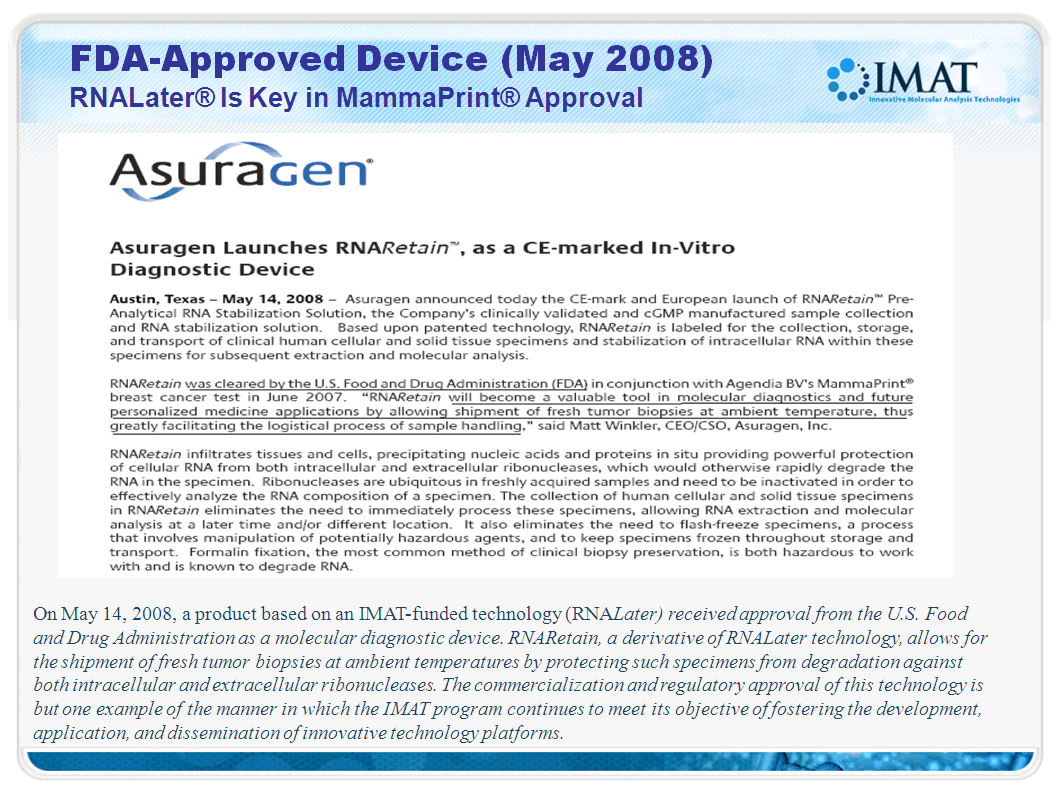FDA-Approveed Device (May 2008)
RNALater® Is Key in MammaPrint® Approval
Asuragen
Asuragen Launches RNARetain™, as a CE-marked in-Vitro Diagnostic Device
Austin, Texas - May 14, 2008 - Asurgen announced today the CE-mar and European launch of RNARetain™ Pre-Analytical RNA Stabilization Solution, the Company's clinically validated and cGMP manufactured sample collection and RNA stabilization solution. Based upon patented technology, RNARetain is labeled for the collection, storage, and transport of clinical human cellular and solid tissue specimens and stabilization of intercellular RNA within these specimens for subsequent extraction and molecular analysis.
RNARetain was cleared by the U.S. Food and Drug Administration (FDA) conjunction with Agendia BV's MammaPrint breast cancer test in June 2007. RNARtain will become a valuable tool in molecular diagnostics and future personalized medicine applications by allowing shipment of fresh tumor biopsies at ambient temperature, thus greatly facilitating the loginstical process of sample handling," said Matt Winkler, CEO/CSO, Asurgen, Inc.
RNAReetain infiltrates tissues and cells, precipatting nucleic acids and proteins in situ providing powerful protection of cellular RNA from both intracellular and extracellular ribonucleases, which would otherwise rapidly degrade the RNA in the specimen. Ribonucleases are ubiquitous in freshly acquired samples and need to be inactivated in order to effictively analyze the RNA composition of a specimen. The collection of human cellular and solid tissue specimens in RNARetain eliminates the need to immediately process these specimens, allowing RNA extraction and molecular analysis at a later time and/or different location. It also eliminates the need to flash-freeze specimens, a process that involves manipulation of potentially hazardous agents, and to keep specimens frozen throughout storage and transport. Formalin fixation, the most common method of clinical biopsy preservation, is both hazardous to work with and is known to degrade RNA.
On May 14, 2008, a product based on an IMAT-funded technology (RNALater) received approval from the U.S. Food and Drug Administration as a molecular diagnostic device. RNARetain, a derivative of RNALater technology, allows for the shipment of fresh tumor biopsies at ambient temperatures by protecting such specimens from degradation against both intracellular and extracellular ribonucleases. The commercialization and regulatory approval of this technology is but one example of the manner in which the IMAT program continues to meet its objective of fostering the development, application, and dissemination of innovative technology platforms.


